When you’re planning a trip, managing your money efficiently is crucial. Whether you’re exploring a new country or diving into local cultures, understanding the currency and payment options can save you time and stress. In Central African regions, the Central African CFA franc is the official currency, and knowing how to handle it can make your journey smoother.
One of the best ways to manage your spending abroad is by using a dedicated travel card. Options like Wise and Revolut offer competitive exchange rates and lower fees compared to traditional banks. Plus, they keep your primary account safe, adding an extra layer of security.
This guide will walk you through everything you need to know about handling payments, from choosing the right card to avoiding unnecessary fees. Whether you’re converting US dollars or looking for the best option for emergencies, we’ve got you covered. Let’s make your next trip hassle-free!
Understanding Currency in Cameroon
Navigating a new country’s currency can be both exciting and challenging. In Cameroon, the official money system revolves around the Central African CFA franc (XAF). This currency is shared with five other Central African nations, making it a vital part of the region’s economic framework.
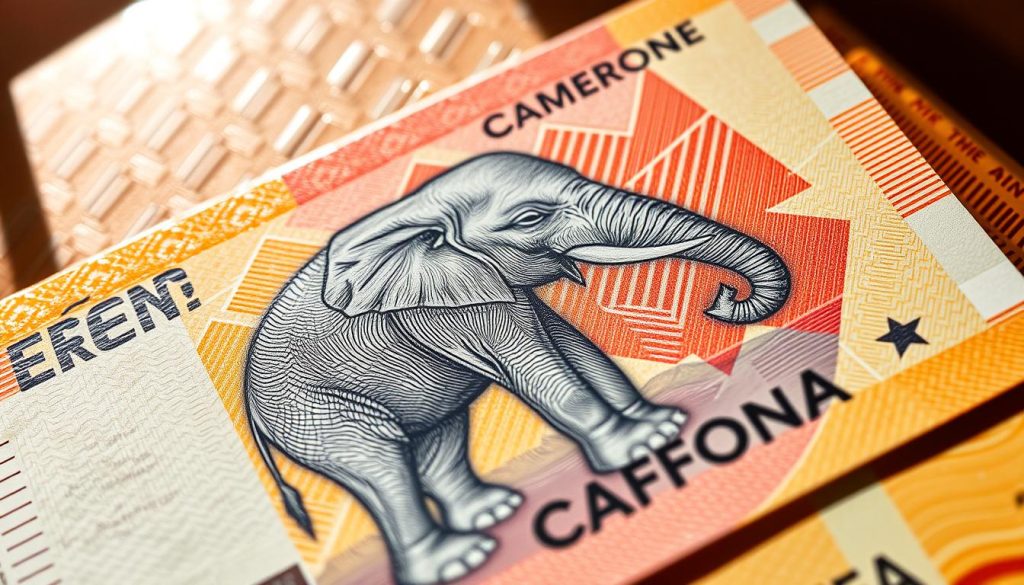
Central African CFA Franc: History and Overview
The CFA franc was introduced in 1945, initially pegged to the French franc. Today, it’s tied to the euro at a fixed rate of 655.957 XAF to €1. This stability helps maintain economic balance across the region. For travelers, understanding this connection can simplify exchange calculations.
Cameroon’s use of the CFA franc reflects its economic ties to the Central African Monetary Union. The Bank of Central African States (BEAC) oversees its issuance, ensuring consistency across member countries.
Currency Denominations and Everyday Use
The CFA franc comes in both coins and banknotes. Common denominations include 500, 1,000, 2,000, 5,000, and 10,000 XAF notes. Coins range from 1 to 500 XAF. Smaller denominations are handy for everyday transactions, like buying snacks or tipping service providers.
While cash is widely used, cards are becoming more accepted in urban areas. However, it’s wise to carry some local money, especially when venturing into rural regions. ATMs are available in cities, but their accessibility decreases in remote areas.
“Understanding exchange rates can save you money and time during your trip.”
Exchange rates fluctuate, so it’s essential to check the current rate before converting your money. Using a reliable travel card or withdrawing cash from ATMs can help you avoid high fees. Always keep an eye on your spending to stay within budget.
Unpacking Travel Money Cards and Their Benefits
Travel money cards are a game-changer for managing your expenses abroad. Whether you’re a frequent flyer or planning a one-time trip, these cards offer convenience, security, and cost savings. Let’s dive into the different types and their unique advantages.
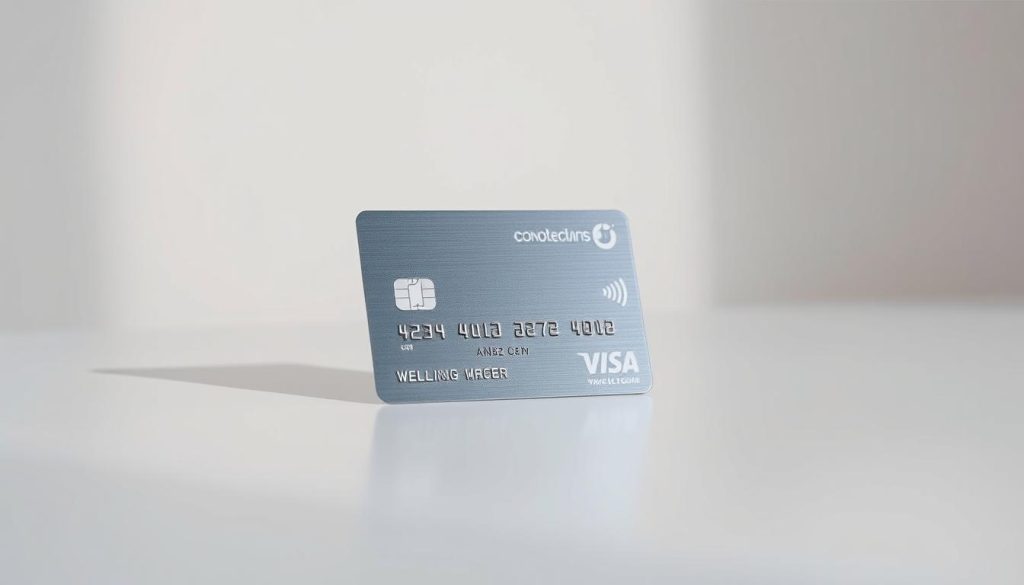
Travel Debit, Prepaid, and Credit Cards Compared
When it comes to travel money cards, you have three main options: debit, prepaid, and credit cards. Each has its pros and cons, so choosing the right one depends on your needs.
- Travel Debit Cards: Linked to your bank account, these cards are great for easy access to funds. Providers like Monzo offer low international fees and real-time transaction alerts.
- Prepaid Cards: Load a specific amount onto these cards, separating them from your main account. Wise is a popular choice for its competitive exchange rates and low fees.
- Travel Credit Cards: Ideal for earning rewards or building credit, but watch out for high interest rates. Chime offers no foreign transaction fees, making it a solid option.
Security Perks and Lower Transaction Fees
One of the biggest benefits of travel money cards is enhanced security. Since they’re separate from your primary account, you minimize the risk of fraud. Plus, features like 2-factor authentication and instant alerts keep you informed about every transaction.
Another advantage is lower fees. Many providers offer competitive exchange rates and reduced ATM withdrawal costs. For example, Wise charges minimal fees for international transactions, saving you money in the long run.
“Using a travel money card gives you peace of mind, knowing your funds are secure and your spending is optimized.”
Whether you’re traveling for business or leisure, a travel money card can simplify your financial management. It’s a smart way to stay on budget and avoid unnecessary costs.
How to Choose a Travel Card for Cameroon
Choosing the right travel card can make your journey smoother and more cost-effective. With so many options available, it’s essential to focus on features that align with your needs. Whether you’re looking for low fees, competitive exchange rates, or enhanced security, this guide will help you navigate the process.
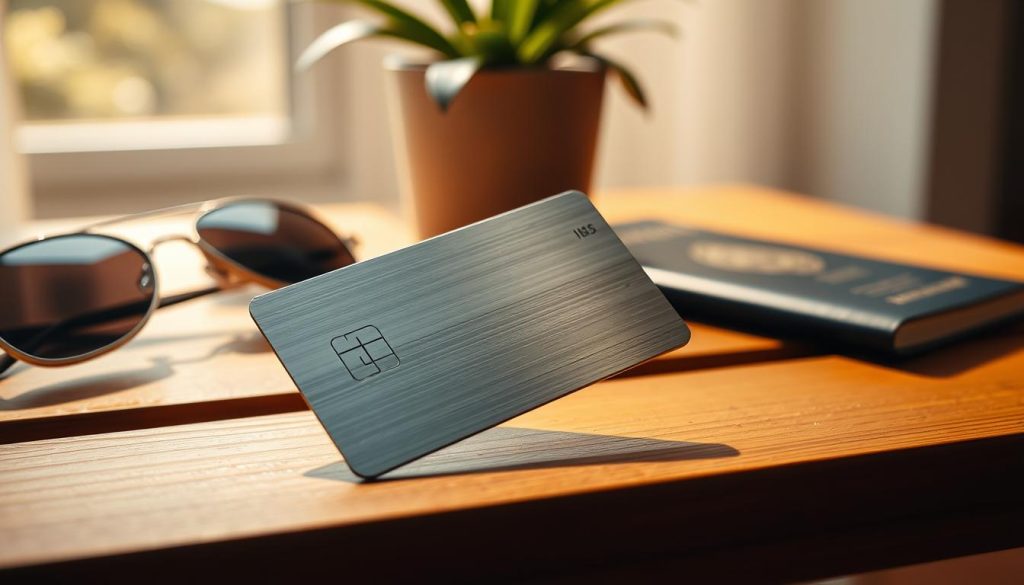
Key Features to Consider
When selecting a travel card, start by evaluating the fee structure. Look for cards with transparent fees for ATM withdrawals, top-ups, and inactivity. Providers like Wise and Travelex often offer competitive rates and minimal hidden costs.
Another critical factor is the exchange rate. Opt for cards that use the mid-market rate, ensuring you get the best value for your money. Additionally, check if the card supports multiple currencies, especially if you plan to visit other countries.
Security features are also vital. Choose cards with 2-factor authentication, instant transaction alerts, and fraud protection. These measures keep your account safe while traveling.
Comparing Top Providers
Here’s how some popular providers stack up:
- Wise: Known for its transparent fees and mid-market exchange rates, Wise is a top choice for international travelers. Its user-friendly app makes managing your card easy.
- Travelex: Offers prepaid cards with no foreign transaction fees. It’s a solid option for those who prefer loading a specific amount before their trip.
- Westpac: Provides travel debit cards linked to your bank account. While convenient, be mindful of potential ATM fees.
“A well-chosen travel card not only saves you money but also gives you peace of mind during your trip.”
Finally, consider the user experience. Apps that allow you to track spending, lock your card, or convert currencies on the go add significant value. Take the time to compare these features before making your decision.
Managing ATM Withdrawals and Card Fees
Handling ATM withdrawals and card fees efficiently can save you both money and time during your trip. Understanding how fees work and adopting smart practices can make your spending more cost-effective. Let’s break down the essentials to help you navigate this aspect of your journey.
ATM Fee Structures and Best Practices
ATM fees can vary widely depending on your card provider and the location of the ATM. Some banks charge international withdrawal fees, while others may include free withdrawals up to a certain limit. For example, Wise offers two free ATM withdrawals per month, with a low fee after that.
To minimize costs, consider these tips:
- Use ATMs affiliated with your bank or global alliances like the Global ATM Alliance to avoid extra fees.
- Withdraw larger amounts less frequently to reduce the number of transactions and associated fees.
- Always choose the local currency (XAF) when prompted to avoid unfavorable exchange rates.
Comparing Travel Card Providers
Different travel card providers offer varying fee structures and benefits. Here’s a quick comparison to help you choose the best option:
| Provider | Free Withdrawals | Foreign Transaction Fee | Daily Withdrawal Limit |
|---|---|---|---|
| Wise | 2 per month | Low | $6,000 |
| Chime | None | None | $500 |
| Monzo | Unlimited | None | Varies |
| Netspend | Varies | Up to 4% | Varies |
Using a travel card with low fees and competitive exchange rates can significantly reduce your expenses. For instance, Monzo offers no foreign transaction fees, making it a great choice for international travelers.
“Always check your card’s fee structure and withdrawal limits before your trip to avoid surprises.”
By following these best practices and choosing the right card, you can manage your money more effectively and enjoy a hassle-free trip. Keep an eye on your spending and stay informed about local ATM fees to make the most of your travel budget.
Navigating Payment Methods in Cameroon
Understanding the best ways to handle payments can make your trip smoother and more enjoyable. In Cameroon, both cash and card are widely used, but knowing when to use each can save you time and money. Whether you’re shopping at a local market or dining at a restaurant, having the right payment option is key.
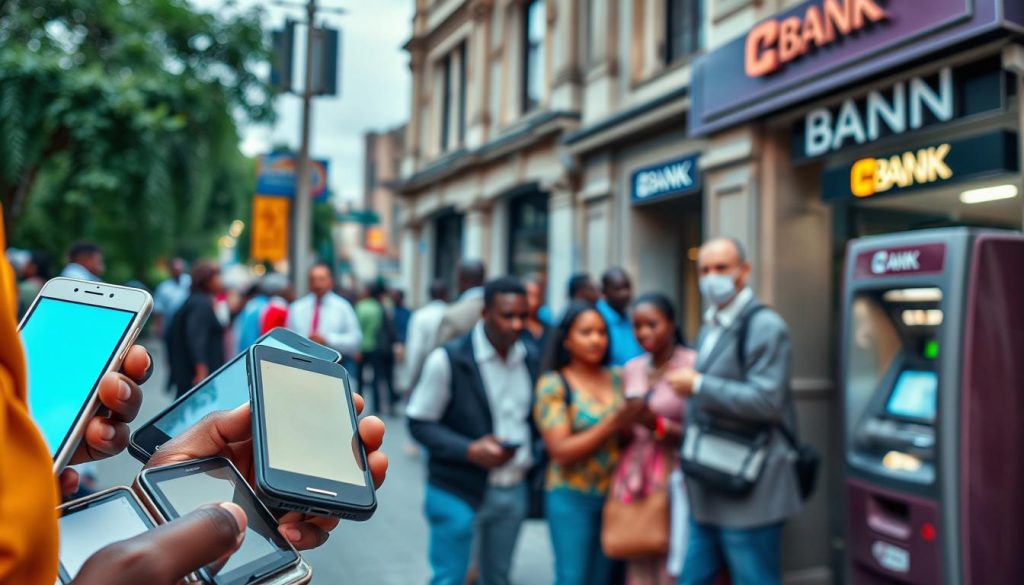
Cash vs. Card: What You Need to Know
Using cash is often the best choice for small transactions or in rural areas where card acceptance is limited. For example, tipping service providers or buying from street vendors usually requires cash. On the other hand, cards are convenient for larger purchases and offer added security.
Here’s a quick comparison:
- Cash: Ideal for markets, tipping, and rural areas. Always carry small denominations for convenience.
- Card: Great for restaurants, hotels, and secure payments. Look for cards with low foreign transaction fees.
Common Payment Methods in Urban Areas
In cities, you’ll find more options like contactless payments and mobile wallets. Services like PayPal are available, allowing you to link multiple cards and shop online. However, not all local banks support withdrawals from PayPal, so plan accordingly.
“Having both cash and a card saved me during my trip. I used cash for markets and my card for hotels.” – Recent Traveler
Tips to Avoid Common Pitfalls
To make the most of your spending, avoid exchanging currency at airports due to high fees. Instead, use ATMs or reliable exchange services. Also, always notify your bank before traveling to prevent your card from being blocked.
Finally, having multiple payment options ensures you’re prepared for any situation. Whether it’s an emergency or a planned purchase, flexibility is your best friend.
Cameroon: Ultimate Travelers Guide to Currencies & Payments
Making your travel transactions smooth and secure is easier than you think. Whether you’re exploring a new country or managing daily spending, a few insider tips can save you time and stress. From choosing the right card to handling emergencies, this guide has you covered.
Proven Strategies for Secure Transactions
Security is a top priority when traveling. Start by using a travel card separate from your primary account. Providers like Wise and Monzo offer features like 2-factor authentication and instant alerts, keeping you informed about every transaction.
Always notify your bank before your trip to avoid your card being blocked. Additionally, carry a backup card and some cash for emergencies. These simple steps can prevent disruptions during your journey.
Emergency Backup Options
If your card is lost or stolen, act quickly. Contact your provider immediately to freeze the account. Many companies, like Monzo, offer 24/7 support to help you resolve issues fast.
For added peace of mind, consider travel insurance that covers lost or stolen cards. This ensures you’re not left stranded without access to your money.
Using Mobile Apps for Instant Management
Mobile apps are a game-changer for managing your spending abroad. Apps like Wise allow you to track transactions, lock your card, and convert currencies on the go. These features make it easy to stay on top of your account.
“Using a travel card with a mobile app gave me complete control over my spending during my trip.” – Recent Traveler
Comparing Top Providers
Here’s a quick comparison of popular travel card providers:
| Provider | Security Features | 24/7 Support | Mobile App |
|---|---|---|---|
| Wise | 2-factor authentication, instant alerts | Yes | Yes |
| Monzo | Card freeze, fraud protection | Yes | Yes |
| Revolut | Virtual cards, spending limits | Yes | Yes |
By following these tips and choosing the right option, you can handle both digital and cash transactions with confidence. Proactive planning ensures a hassle-free trip.
Smart Tips for Saving Money on Your Trip
Traveling on a budget doesn’t mean sacrificing comfort or experiences. With a little planning and the right strategies, you can make your money go further while enjoying every moment of your journey. Here’s how to save smartly and avoid common financial pitfalls.
Budgeting and Planning Your Finances
Start by setting a realistic budget for your trip. Break it down into categories like accommodation, food, transportation, and activities. Booking flights and hotels early can save you significant costs. For example, flights booked six months in advance are often cheaper than last-minute bookings.
Using a travel card like Wise or Revolut can help you manage your spending efficiently. These cards offer competitive exchange rates and low fees, making them a great option for international travelers.
Avoiding Currency Exchange Pitfalls
One of the biggest mistakes travelers make is exchanging currency at airports. The rates are often unfavorable, and fees can add up quickly. Instead, use ATMs or reliable exchange services in the city.
Carry a mix of cash and cards to cover all your needs. While cards are convenient for larger purchases, cash is essential for small transactions and rural areas where card acceptance is limited.
“Planning your finances ahead of time gives you peace of mind and helps you avoid unnecessary expenses.”
Research local deals and discounts before booking activities or dining out. Many cities offer free walking tours or discounted entry to attractions for tourists. These small savings can add up over the course of your trip.
Finally, monitor your account regularly to stay on top of your spending. Apps like Wise allow you to track transactions and convert currencies on the go, giving you complete control over your money.
Preparing for Travel Money Safety and Security
Ensuring your financial safety while traveling is essential for a stress-free experience. Protecting your accounts and having backup plans can save you from unexpected challenges. Here’s how to stay secure and prepared when managing your money abroad.
Best Practices for Protecting Your Accounts
Start by using a dedicated travel card separate from your primary account. This minimizes the risk of fraud and keeps your main funds safe. Providers like Wise and Monzo offer features like 2-factor authentication and instant transaction alerts.
Always notify your bank before your trip to avoid your card being blocked. Carry a backup card and some cash for emergencies. These simple steps can prevent disruptions during your journey.
Monitor your account regularly using mobile apps. Apps like Wise allow you to track spending, lock your card, and convert currencies on the go. This gives you complete control over your finances.
Emergency Solutions and Backup Options
If your card is lost or stolen, act quickly. Contact your provider immediately to freeze the account. Many companies, like Monzo, offer 24/7 support to help you resolve issues fast.
For added peace of mind, consider travel insurance that covers lost or stolen cards. This ensures you’re not left stranded without access to your money.
Keep emergency contact information handy, including your embassy’s number. Some embassies offer repatriation loans in case of emergencies. Having a backup plan ensures you’re prepared for any situation.
“A well-prepared traveler is a confident traveler. Always have a backup plan and stay informed about local emergency procedures.”
Here’s a quick comparison of popular travel card providers and their security features:
| Provider | Security Features | 24/7 Support | Mobile App |
|---|---|---|---|
| Wise | 2-factor authentication, instant alerts | Yes | Yes |
| Monzo | Card freeze, fraud protection | Yes | Yes |
| Revolut | Virtual cards, spending limits | Yes | Yes |
By following these tips and choosing the right option, you can handle both digital and cash transactions with confidence. Proactive planning ensures a hassle-free trip.
Conclusion
Planning your finances wisely ensures a smooth and enjoyable journey. By choosing the right travel card, you can manage your spending efficiently and avoid unnecessary fees. Always carry a mix of cash and cards to handle different situations, especially in areas with limited card acceptance.
Understanding local exchange rates and using secure payment methods can save you time and money. Apps linked to your account provide real-time updates, helping you stay on budget. Additionally, travel insurance offers peace of mind in case of emergencies.
With these tips, you’re ready to explore confidently. Use this guide as a reference to make informed decisions and enjoy a hassle-free trip. Safe travels!
The above is subject to change.
Check back often to TRAVEL.COM for the latest travel tips and deals.
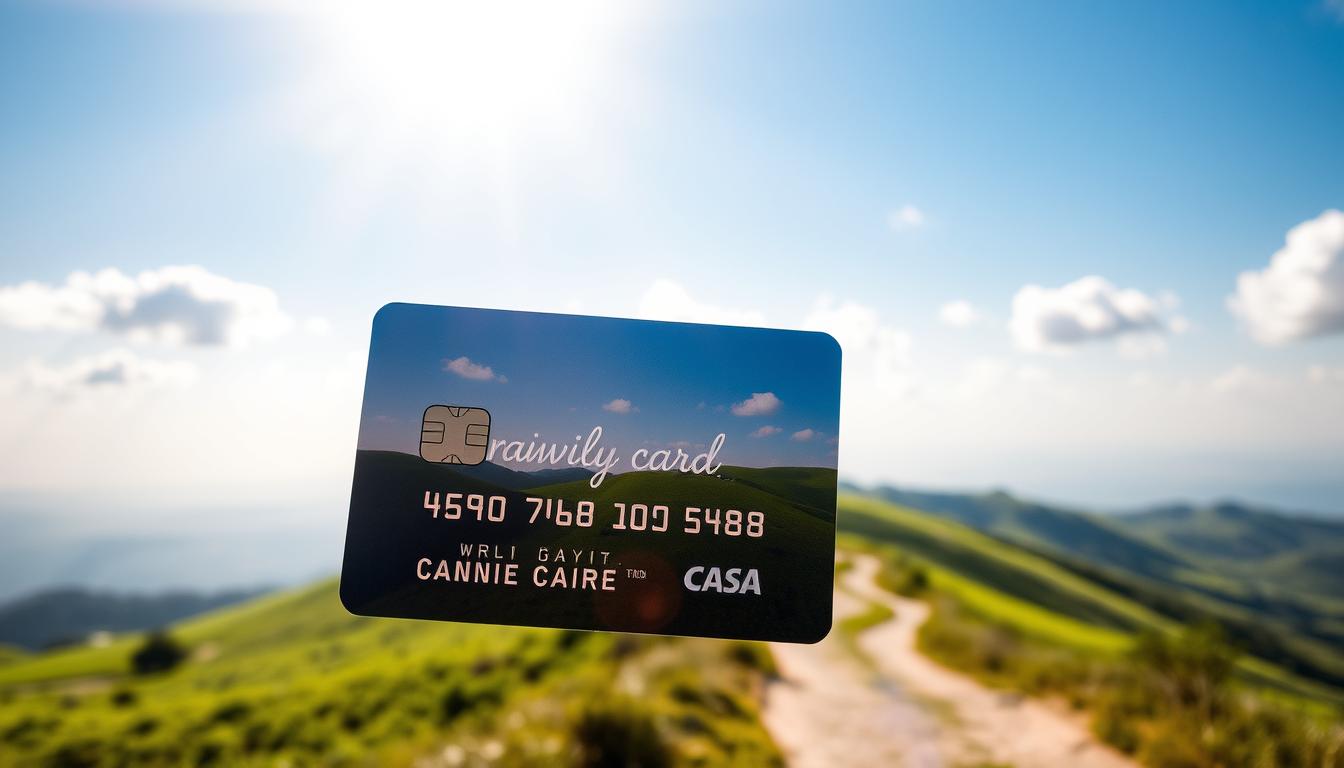
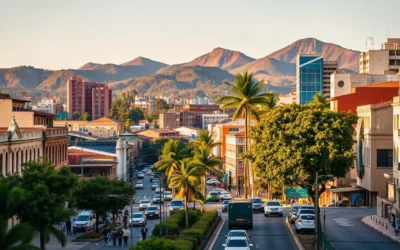

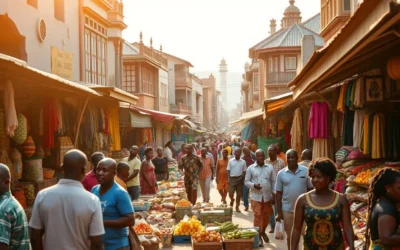


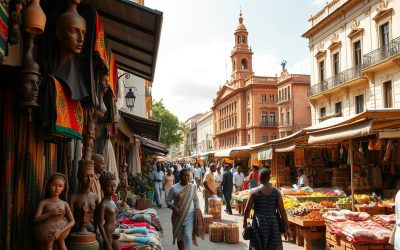
0 Comments